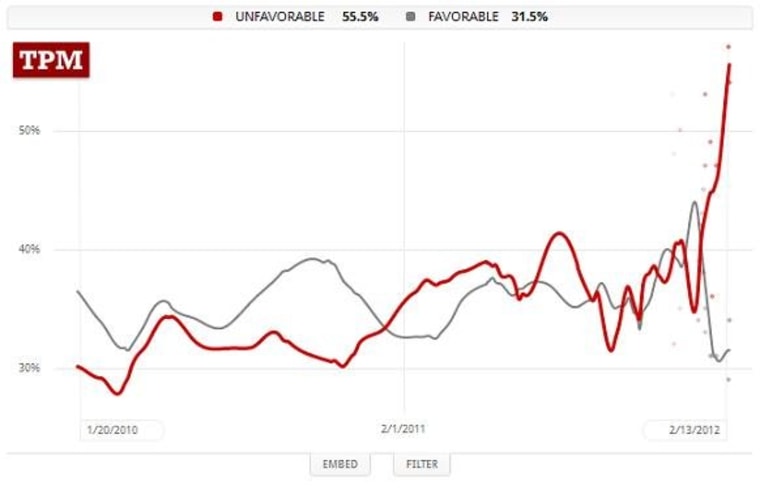The latest New York Times/CBS News poll, released last night, doesn't offer much in the way of good news for Republicans. But for Mitt Romney, the results are especially discouraging.
Across the board, American attitudes are shifting in directions the GOP won't like: President Obama's approval rating is up; he leads all of his Republican rivals in hypothetical matchups; Americans are increasingly optimistic about the economy; and the GOP "enthusiasm" advantage has disappeared entirely. There are still plenty of potential pitfalls -- Europe, Iran, gas prices -- but the NYT/CBS results are no doubt welcome news at the White House.
And there's the former Massachusetts governor. He's lost his lead among Republicans to Rick Santorum, and more than 6 in 10 GOP voters wish there was someone else to support for the party's presidential nomination.
But following up on the "Chart Imitates Life" segment from last night's show, this was the question in the poll that stood out for me: "Is your opinion of Mitt Romney favorable, not favorable, undecided, or haven't you heard enough about Mitt Romney yet to have an opinion?"
In all, 40% of Americans have an unfavorable view of Romney -- the worst he's done in five years of polling -- while 26% have a favorable view. (By comparison, Obama's fav/unfav rating is 45/41.) A new CNN poll also shows Romney's favorability numbers tumbling.
TPM has this chart, which helps drive the point home. The red line in the image shows Romney's unfavorable numbers.
This matters, of course, because it points to an uncomfortable truth: the more Americans see of Romney, the less they like him. But it also matters because this is a problem that's fundamentally difficult to fix. Candidates can change their advertising strategies; they can rewrite their speeches; they can find new surrogates; and they can even change their appearance.
When voters just don't like a candidate, however, that's a hurdle that's much harder to overcome.
